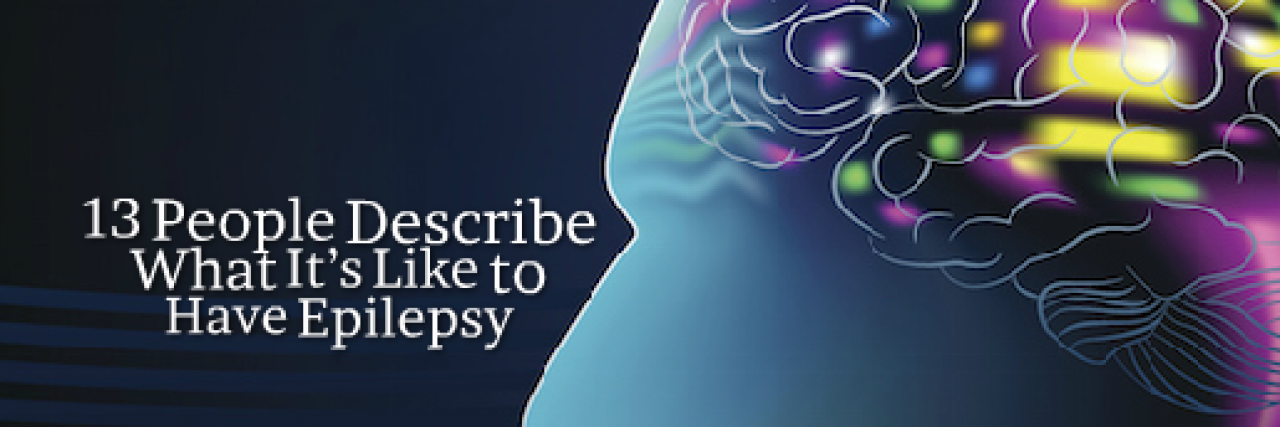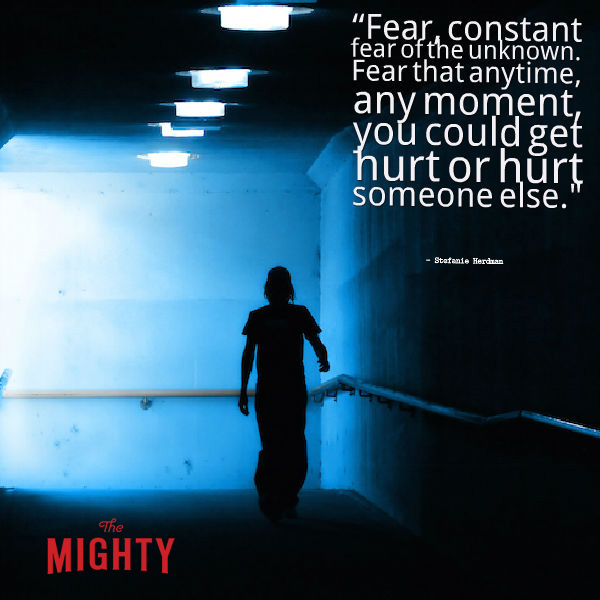When a person has had two or more seizures unprovoked by specific events (such as trauma, infection, fever or chemical change), that person is considered to have epilepsy, a condition that affects 65 million people worldwide, according to Citizens United for Research in Epilepsy (CURE). However, because of the complex nature of the brain, a lot of unknowns and therefore misconceptions exist around epilepsy, making it hard for others to understand it.
The Mighty teamed up with CURE Epilepsy to ask people affected by epilepsy how they’ve explained it to others.
Other relevant stories:
• What Are the 12 Types of Seizures
• What to Do When Someone Has a Seizure
• Can a Woman with Epilepsy Have a Baby
This is what they had to say:
1. “It’s like having an earthquake going on inside your head, with the epicenter always in the same spot. The only question is the magnitude and how far it will be felt.” — Cindy Platt Hanlon
2. “I’ve had difficulty explaining my seizures to people because seizures mean you’re unconscious and therefore unaware of the entire experience. I recently took my partner with me to the doctor to tell what she saw. Together we were able to do a pretty good job.” — Eugenie Margaret Macfarlane
3. “[It’s] like waking up in a place where you did not go to sleep. ” — Christopher Simmons
4. “Epilepsy is like sitting on a time-bomb, just waiting for it to go off at any time.” — Lara Houlihan Ashmore
5. “Fear, constant fear of the unknown. Fear that any time, any moment, you could get hurt or hurt someone else. Your stomach gets in knots, you become very anxious. It’s like someone or something is taking over your body for a few minutes, doing what they want with it, and then you don’t remember what was done. You can only pray you come out alive or not hurt.” — Stefanie Herdman
6. “My son once described his epilepsy as ‘his brain having a wild party without inviting him.’” — Maureen T. Stemmelen
7. “I used to tell people I’d hear a loud humming noise in my head and that my vision would get ‘fuzzy’ (like a TV channel would get when the cable went out).” — Dennis Carlson
8. “Epilepsy is like an onion — it stinks no matter how much you try to pull away from it, and it is often tear-inducing.” — Alexis Nicole Hymore
9. “I talked [to my children] about how the brain receives and send messages to other parts of the body all of the time — the brain sends a message to your lungs to breathe, your fingers send a message back to your brain to say they’re cold, etc. When my son has a seizure, his brain’s messages get a little mixed up and cause his brain to stop receiving messages (that’s why he can’t hear us) and sends out wrong messages. I tell them because his brain can’t receive messages, it’s important we take care of his body during a seizure, for example making sure he’s not near something hot that could burn him.” — Vera Chenault
10. “[It’s like] the brain is a computer and epilepsy is the virus. The epilepsy virus causes the brain to reboot, so please stand by when a reboot is in progress. There is no way to remove the virus so it needs to be quarantined (medicated). Please stand by as your doctor (the anti-virus), is working on the removal process.” — dhbepilepsy.com Facebook page
11. “Imagine your brain has a bunch of light switches. Normally, your brain works with your body, and when you want to move your arm, for instance, a switch is flipped. In someone with epilepsy the brain stops talking to the body and switches get flipped without the person wanting them to get flipped.” — Jolene Kristovich
12. “I usually just say it’s like a lightning storm in the brain.” — Onyx Song Jat Sharif
13. “Take files out of a file cabinet and throw them up in the air. Now put all the papers back in the right file folder. That’s what happens when I have a seizure.” — Doreen Langley
*Some answers have been edited and shortened.






![Quote from dhbepilepsy.com : "[It's like] the brain is a computer and epilepsy is the virus.](https://themighty.com/wp-content/uploads/2016/01/5-copy1.jpg)

